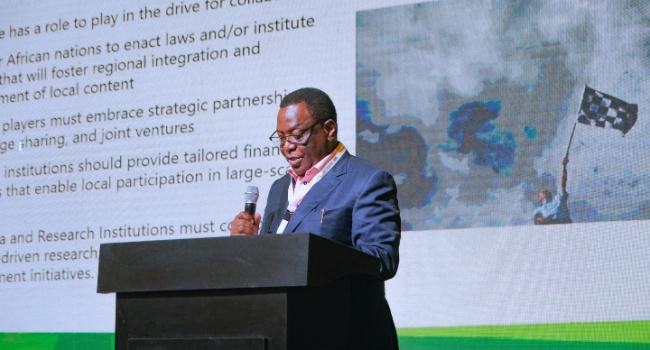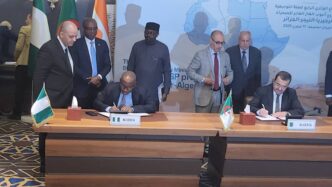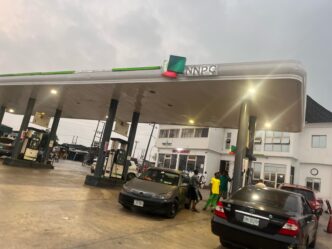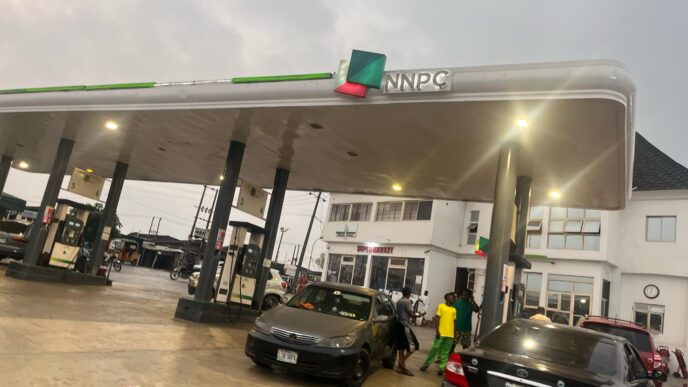Felix Ogbe, executive secretary of the Nigerian Content Development and Monitoring Board (NCDMB), has urged African nations to strengthen collaboration in the oil and gas sector.
Ogbe called on sub-Saharan African nations to align with evolving global trends in the oil and gas industry and adopt a unified strategy to enhance local content development, drive industrialisation, and foster sustainable economic growth.
He spoke while giving his keynote address at the 9th Sub-Saharan Africa International Petroleum Exhibition and Conference (SAIPEC) in Lagos on Tuesday.
The executive secretary said while countries like Nigeria, Angola, and Ghana have made significant progress in local content development, fragmented implementation continues to impede collective advancement.
Advertisement
“There is a need to develop a robust local content framework that positions the region for long-term economic prosperity,” Ogbe said.
“This could be fostered through the collaborative efforts of APPO [African Petroleum Producers Organisation] and the United Nations Economic Commission for Africa and the African Union.”
He called for closer collaboration among petroleum-producing nations to share best practices, enhance cross-border partnerships, and improve the competitiveness of indigenous players.
Advertisement
In his keynote address titled “Sub-Saharan Africa Local Content Collaboration Strategy,” Ogbe outlined key pillars of Africa’s collaboration strategy, including harmonisation of local content policies, human capital development, investment in infrastructure, funding for local companies, and technology transfer.
The executive secretary also highlighted the African Continental Free Trade Agreement (AfCFTA) as a crucial framework for strengthening local content collaboration, noting that it has established a free trade zone uniting 1.3 billion people across 54 African nations with a collective gross domestic product (GDP) exceeding $3 trillion.
Ogbe also underscored the importance of human capital development, stressing that Africa’s youthful population, where 60 percent of people are under 25, offers a unique advantage for accelerating industrial growth.
“A large, young workforce can drive expansion through increased productivity and expansion,” he said.
Advertisement
Ogbe pointed to major infrastructure projects as catalysts for regional economic development.
He cited the 650,000-barrel-per-day Dangote refinery, which provides opportunities for petroleum product sourcing across Africa.
Other notable projects mentioned by Ogbe include Kenya’s Konza Technology City, the Grand Ethiopian Dam, the Lekki Free Trade Zone in Lagos, and the SHI-MCI FPSO Fabrication/Integration Yard.
Additionally, Ogbe highlighted NCDMB’s Nigerian Oil and Gas Parks Scheme (NOGAPS), which is being developed in seven locations across Nigeria.
Advertisement
He encouraged investors to take advantage of the facilities to manufacture industry-related equipment, components, and spare parts.
On financing, Ogbe emphasised the need for a regional financial framework to provide credit facilities, guarantees, and investment incentives for indigenous firms.
Advertisement
The secretary announced that the African Energy Bank, established by the African Petroleum Producers Organisation (APPO), with support from NCDMB, will soon be operational.
‘ENCOURAGING JOINT VENTURES WILL CREATE SOLUTIONS FOR AFRICAN ECONOMY’
Advertisement
Ogbe further stressed the role of technology transfer and innovation in Africa’s energy sector, advocating for joint ventures, research collaborations, and technology-sharing agreements among nations.
“Encouraging joint ventures, research collaborations, and technology-sharing agreements among African nations will drive the adoption of cutting-edge solutions and indigenous technological advancements in the African economy,” he added.
Advertisement
The executive secretary also called for stronger collaboration between academia and the petroleum industry, urging research institutions to focus on industry-driven research, innovation, and skills development.
Ogbe said through collaboration, a strong and self-sufficient petroleum sector can be built, ensuring lasting benefits for economies, businesses, and communities.
Add a comment










